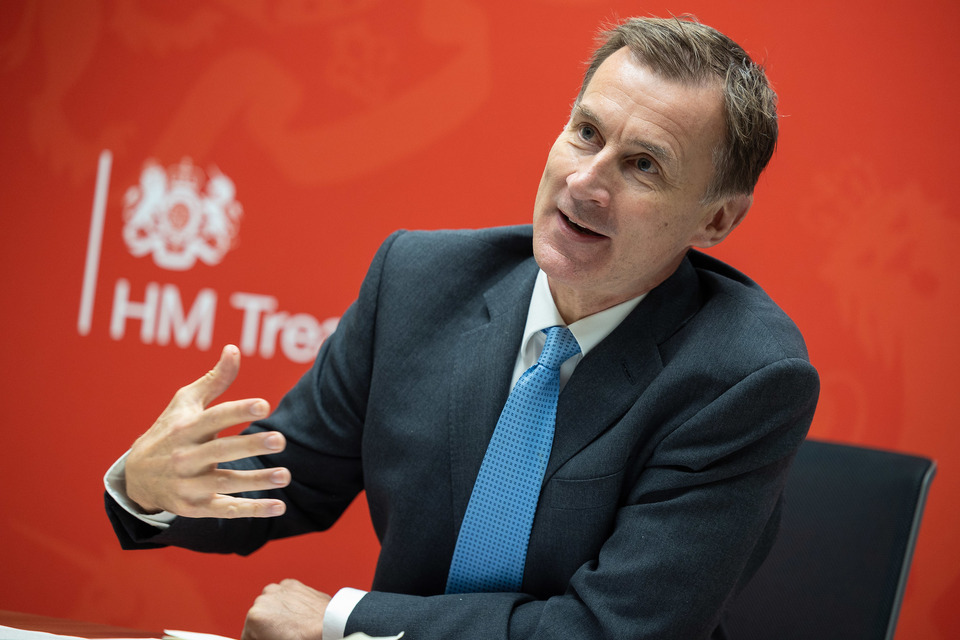Treasury says suggestion that gap between reviews could be extended to six years is no more than ‘speculation’ currently
Credit: Pixabay
The Institute for Fiscal Studies has called on the government to scrap plans for a full three-year Spending Review and instead roll over existing budgets because of the uncertainty over Covid-19 and Brexit.
The last full review took place in 2015 and the spending that took place in September 2019 was itself a stopgap measure, after the originally scheduled date of the review was pushed back due to Brexit. Any further delay will cast more uncertainty over a number of technology programme and investment initiatives that are dependent on long-term backing – possibly including a government-wide drive to address the prevalence of legacy technology across Whitehall.
The Government Technology Innovation Strategy published last year set out plans for the Government Digital Service to conduct an audit of legacy technology across government. The hope Having completed this exercise earlier this year, the agency had been working with HM Treasury towards the goal of using the upcoming review to support departments in addressing their technology upgrade needs.
Related content
- Can the GDS innovation strategy deliver a lasting legacy for government?
- ‘We proved ourselves to the Treasury’ – one-on-one with former GDS big gun Poss Apostolou
- Government transformation projects ‘promise too much at the outset’ – IPA chief
But the IFS think tank today this week published part of its forthcoming “Green Budget” on government finances, and highlighted that the scale of economic uncertainty was such that previous indicative spending plans set out by government were now meaningless.
Following last year’s spending round, which increased budgets for all departments for the first time in 15 years, the think tank said that plans for the a full Spending Review published in March 2020 would have seen public service spending rising by 10.7% between 2019–20 and 2023–24.
However, those plans are now “obsolete”, the researchers say, as departments have already been allocated more than £70bn this year for day-to-day public services as part of the response to the virus, without even counting many economic support schemes such as the Coronavirus Job Retention Scheme.
A crucial question for a Spending Review is how much of this spending is only needed this year, and how much needs to continue into future years, Ben Zaranko, a research economist at IFS and the author of the research, said. If spending will need to remain high, then it is better for a government to understand that before setting three- or four-year budgets.
“The immense economic uncertainty associated with the Covid-19 pandemic, and the looming end of the Brexit transition period, make this an extraordinarily difficult time for the chancellor to be formulating public spending plans,” he said.
“Covid-19 has blown previous spending plans out of the water, with more than £70bn allocated to departments this year for day-to-day spending as part of the response to the virus. If some of these spending programmes – such as the running costs of NHS Test and Trace – are to be unfortunate facts of life for years to come, they could swallow up huge amounts of money, and leave some public services facing another round of budget cuts for their core services. Avoiding that scenario would require the chancellor to find billions of extra funding, paid for at some point through higher taxes.”
A Treasury spokesperson told PublicTechnology sister publication Civil Service World that it was still only “speculation” at this point that the review would be truncated from three years to one.
Whatever the length of the spending plans, the IFS noted that forthcoming spending decisions were likely to result in public spending settling at a higher share of national income than it was after 10 years of Labour government back in 2007–08.
Despite almost a decade of spending cuts, public spending was at 39.8% of national income before the pandemic, around the same level as 2007−08, and any sustained increase in spending will move it higher.
Mark Franks, director of welfare at the Nuffield Foundation, which funded the IFS research, said: “Huge changes in the composition of public spending over recent years raise fundamental questions about the role and size of the state that the government has yet to address. The pandemic and the economic outlook make those questions more pressing than ever, but also impossible to answer satisfactorily at this time. In light of this, the single-year settlement proposed by the IFS in its Green Budget is the best option in the short term.”



